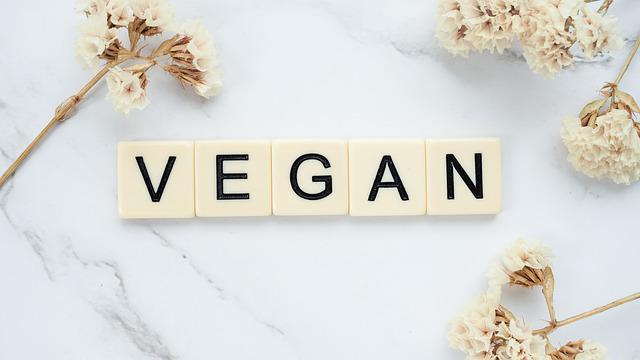Vegan Diet and Veganism is something that has become quite a fad that health enthusiasts have been following for quite some time now. Let’s check out everything about it
What Is a Vegan Diet?
In order to avoid using animals in any way, whether it be for food, clothes, or other purposes, one adopts a vegan lifestyle. A vegan diet, therefore, forgoes all animal products, such as meat, dairy, and eggs. Various factors influence why people opt to eat vegan. However, they can also result from a desire to enhance health. Typically, these vary from ethical to environmental issues.
How Can A Vegan Diet Help You Lose Weight?
Vegans typically weigh less and have a lower body mass index (BMI) than non-vegans. (Source) This may help to explain why more people are turning to vegan diets to shed pounds. It’s possible that variables other than nutrition can account for some of the weight-related advantages vegans experience.

In general, studies show that people on vegan diets lose more weight than people on calorie-restricted diets, even when they are permitted to eat until they are satisfied. A higher intake of dietary fiber, which can help you feel fuller, may be the reason why vegans have a natural predisposition to eat fewer calories. (Source)
How Vegan Diet Is Helpful For Diabetes And Prediabetic
Changing to a vegan diet may assist in preventing type 2 diabetes and controlling blood sugar. Numerous studies demonstrate that compared to non-vegans, vegans have lower blood sugar levels, improved insulin sensitivity, and a 78% decreased risk of type 2 diabetes.
Vegan diets are also said to lower blood sugar levels in diabetics up to 2.4 times more than diets advised by the ADA, AHA, and NCEP. The potential of a vegan diet to lower blood sugar levels may also help to promote weight loss.
Other Health Benefits Of Vegan
A wide range of additional health advantages, such as advantages for:
- Cancer risk. The risk of acquiring or passing away from cancer maybe 15% lower for vegans.
- Arthritis. Vegan diets appear to be especially beneficial at easing arthritic symptoms like pain, joint swelling, and morning stiffness.
- Kidney function. Meat substitution with plant proteins may lower the incidence of kidney disease in diabetics.
- Alzheimer’s disease. A vegan diet may help lower the chance of acquiring Alzheimer’s disease, according to observational research.
Foods That You Can Eat as a Vegan?
Vegans that are health-conscious replace animal products with alternatives made from plants, such as
Nuts and nut butter. Iron, fibre, magnesium, zinc, selenium, and vitamin E are all present in good amounts in unblanched and unroasted vegetables.
Seeds: Protein and healthful omega-3 fatty acids are present in moderate amounts in hemp, chia, and flaxseeds.
Algae. Complete proteins can be found in spirulina and chlorella. Iodine is abundant in other kinds.
Fruits and vegetables. You can enhance your nutrient intake by eating both of these foods. Strong sources of iron and calcium include leafy greens including bok choy, spinach, kale, watercress, and mustard greens.
Whole grains, cereals, and pseudocereals. These are fantastic sources of high-protein vitamins, complex carbohydrates, and several minerals. High-protein alternatives include quinoa, teff, amaranth, and spelling.
Foods To Avoid In a Vegan Diet
Vegans abstain from consuming any animal products or anything with animal products as ingredients. These consist of:
- Meat and poultry: beef, lamb, pork, veal, horse, organ meat, wild meat, chicken, turkey, goose, duck, quail, etc.
- Fish and seafood: all types of fish, anchovies, shrimp, squid, scallops, calamari, mussels, crab, lobster, etc.
- Dairy: milk, yogurt, cheese, butter, cream, ice cream, etc.
- Eggs: from chickens, quails, ostriches, fish, etc.
- Bee products: honey, bee pollen, royal jelly, etc.
Vegan Tips And Tricks
- Put vegetables front and centre in your meals.
- Consume a Wide Range of Foods.
- Opt for whole grains.
- Learn about novel plant-based proteins.
- Don’t automatically assume that vegan food is healthier.
- Focus on Omega-3s Without Fish.

Side Effects Of Being a Vegan
Anemia, hormonal imbalances, vitamin B12 deficiency, and depression brought on by a diet low in omega-3 fatty acids are a few of the potential adverse effects of going vegan. The importance of getting enough proteins, vitamin B12, vitamin D, iron, calcium, iodine, zinc, and omega-3 fatty acids in your diet cannot be overstated.
Risk Of Vegan Diet
Everyone, not just vegans, should favour a well-planned diet that restricts processed foods and substitutes nutrient-rich foods in their place. However, those who consume vegan meals that were not well prepared are particularly vulnerable to dietary deficits. According to studies, vegans are more likely to have low amounts of vitamin B12, vitamin D, long-chain omega-3 fatty acids, iodine, iron, calcium, and zinc in their blood.
The End Note
For a variety of reasons, including health and/or ethical considerations, many choose the vegan diet. While there are many health benefits to being vegan, it is crucial to educate persons who are or plan to become vegan about possible vitamin deficiencies in order to avoid unfavorable results.
Also Read: All about Ketogenic Diet: A Beginner’s Guide to Keto Diet





